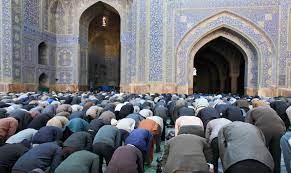Ramadan is an important month in the Islamic calendar. It is a time of spiritual reflection, prayer, and fasting from dawn until sunset. Muslims around the world observe Ramadan as one of the Five Pillars of Islam.
This holy month is observed by billions of people worldwide and is a time for increased devotion, charity, and self-reflection.
What is the spiritual significance of ramadan
As Muslims, we understand the importance of Ramadan and the significance of the holy month. In this article, we will explore the 4 important things of Ramadan that every Muslim should know and practice.
- Fasting Fasting is the most well-known aspect of Ramadan. It is a time when Muslims abstain from food, drink, and other physical needs during the daylight hours. Fasting is an act of worship that helps Muslims strengthen their faith and connect with God. It is a time for spiritual reflection, self-discipline, and self-control. Fasting also helps Muslims develop empathy and compassion for those who are less fortunate.
- Prayer Prayer is an essential part of Islam and is particularly important during Ramadan. Muslims are encouraged to increase their prayers during this month, including performing the Taraweeh prayer, a special prayer performed after the Isha prayer. The Taraweeh prayer is typically performed in congregation at the mosque and can take up to an hour to complete. It is a time for Muslims to connect with God, seek forgiveness, and reflect on their faith.
- Charity Charity is an important aspect of Islam and is especially important during Ramadan. Muslims are encouraged to give to the less fortunate during this month, whether through Zakat (obligatory charity) or Sadaqah (voluntary charity). Giving charity during Ramadan is considered a virtuous act and helps Muslims connect with their community and those in need.
- Self-reflection Ramadan is a time for self-reflection and self-improvement. Muslims are encouraged to use this month to reflect on their actions, seek forgiveness, and make positive changes in their lives. Self-reflection can help Muslims develop a deeper understanding of themselves and their faith, and can lead to personal growth and spiritual enlightenment.





